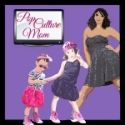SCOTUS and the Voting Rights Act

There was a lot I was going to say about the Supreme Court's holding in Shelby County v. Holder, the case gutting the heart of the Voting Right Act of 1965 by invalidating the preclearance provisions and pre-existing coverage formulas of the Act. You know, things about the gall of Roberts, Scalia, Kennedy, Thomas, and Alito to dismantle legislation that was approved by a vast majority of Congress (390-33 in the House and 98-0 in the Senate) and an overwhelming majority of the population of the United States... a bill that is so needed, especially in light of voting irregularities that continue to exist in the states subject to the preclearance requirements and even some yahoo Texas senator who said just last week that as long as minorities were voting democratic nine out of 10 times, "we" (they, the GOP)didn't want them (us, me) voting... how this post-racial America the five justices of the majority tried to create in their opinion has no basis in reality... How Clarence Thomas, especially, should be drawn and quartered for his part in effectively cementing the death of suffrage for many blacks in this country. Yes, I was going to say all of this. But the need was underscored by a meme created by one of Justice Ruth Bader Ginsburg's more brilliant lines in her wholly brilliant and scathing dissent. So I'm going to let the justice who holds my girl crush, the mom of the scariest professor I had in law school, say it all for me:






























0 comments:
Post a Comment
In keeping with our vow to the Mom Pledge, all comments will be moderated for tone. Any comments made outside the spirit of that Pledge or any comments made to invoke a reaction outside the scope of that Pledge will not be posted.